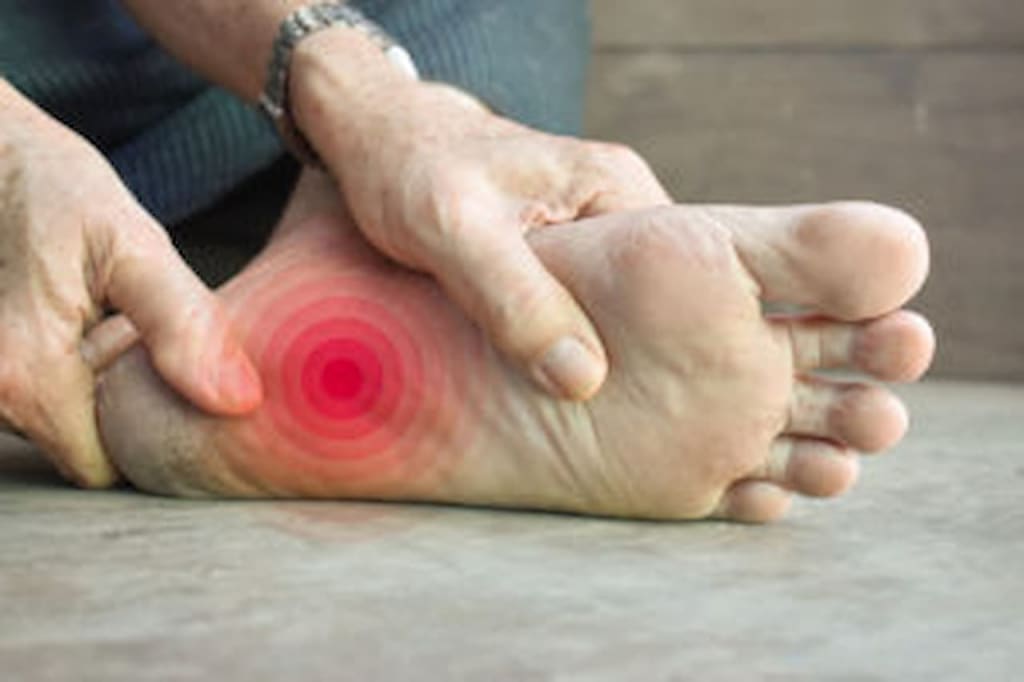Peripheral Neuropathy—A Disorder of Peripheral Nerves
Peripheral neuropathy gets characterized by hand and foot weakness, numbness, and pain caused by nerve damage outside the brain and spinal cord (peripheral nerves). It can also affect the body's other areas and functions, such as digestion, urination, and circulation.

Here is all about peripheral neuropathy, a condition when the peripheral nerves communicate with the central nervous system (brain, spinal cord, and the rest body).
Peripheral neuropathy treatment is a broad term for various conditions caused by damage to the peripheral nervous system, which transmits sensory information to and from the central nervous system. For example, peripheral nerves can alert the body when the hands are cold.
More than 10 million people in the U.S. suffer from this disorder. In general, the condition can result in the loss of normal nerve signals or the transmission of inappropriate or distorted signals.
Because the condition can affect various nerves, it can affect multiple locations in different ways, and it can also affect a single nerve or several nerves simultaneously.
What is neuropathy?
Neuropathy is caused by the damage or dysfunction of one or more nerves, resulting in numbness, tingling, muscle weakness, and pain in the affected area. Neuropathies commonly begin in the hands and feet, but other body parts can also be affected.
The network of nerves outside your brain and spinal cord is your peripheral nervous system. Our central nervous system (CNS) entails the brain and spinal cord. Consider how the two systems interact: The central station is your nervous system. The command and control center is the hub from which all trains arrive and depart.
The tracks that connect to the central station are your peripheral nervous system. The tracks (nervous network) enable trains (information signals) to travel to and from the central station (your brain and spinal cord).
Neuropathy occurs when nerve cells, known as neurons, are damaged or destroyed and interfere with the way neurons communicate with one another and the brain. Neuropathy can affect a single nerve or nerve type, a group of nerves in a specific area (multifocal neuropathy), or many peripheral nerves throughout the body (polyneuropathy).
It is good to consult with an expert peripheral neuropathy doctor if you feel you might be a patient with neuropathy.
Symptoms
Because each nerve in your peripheral system serves a specific purpose, symptoms vary depending on which nerves are affected. Nerves are classified as follows:
Sensory nerves receiving sensations from the skin (temperature, pain, vibration, or touch)
Motor nerves are the nerves that control muscle movement.
Autonomic nerves control blood pressure, perspiration, heart rate, digestion, and bladder function.
Signs and symptoms:
- Numbness, tingling, or prickling in your feet or hands area that can spread up into your legs and arms
- Sharp, jabbing, throbbing, or burning discomfort
- Touch sensitivity
- Pain during activities that should not cause pain, like putting weight on feet or putting them under a blanket.
- Muscle fatigue
- Paralysis occurs if the motor nerves are damaged
Signs and symptoms of autonomic nerve dysfunction may include:
- Heat sensitivity
- Excessive sweating or inability to sweat
- Problems with the bowel, bladder, or digestion
Neuropathy can affect one nerve (mononeuropathy), two or more nerves in different areas (multiple mononeuropathies), or many nerves (multiple polyneuropathies) (polyneuropathy). Mononeuropathy gets exemplified by carpal tunnel syndrome, and Polyneuropathy is the most common type of neuropathy.
Causes
Neuropathy is a type of nerve damage caused by a variety of conditions. The following medical conditions can cause neuropathy (peripheral):
Diabetes
It is the most typical reason. More than half of people with diabetes will develop some form of neuropathy.
Infections
Certain infections (viral or bacterial), such as shingles, Lyme disease, Epstein-Barr virus leprosy, hepatitis B and C, diphtheria, and HIV, fall into this category.
Disorders that are inherited
Hereditary neuropathy disorders include Charcot-Marie-Tooth disease.
Disorders of the bone marrow
These include abnormal blood proteins (monoclonal gammopathies), bone cancer (myeloma), lymphoma, and the rare disease amyloidosis.
Tumors
Cancerous (malignant) growths can form on or press on nerves. Polyneuropathy can also develop due to some cancers affecting the immune system. It is a type of degenerative disorder known as a paraneoplastic syndrome.
Other illnesses
Kidney disease, connective tissue disorders, liver disease, and an underactive thyroid are examples (hypothyroidism).
Neuropathies can also be caused by:
Alcoholism
Poor dietary choices due to alcoholics can lead to vitamin deficiencies.
Poisoning exposure
Industrial chemicals and heavy metals like lead and mercury are toxic substances examples.
Medications
Certain medications, particularly those used to treat cancer (chemotherapy), can cause neuropathy (peripheral).
When should you see a doctor?
If you notice unusual tingling, weakness, or pain in your hands or feet, you should make no delays in consulting with a peripheral neuropathy doctor without making any delays. You have the best chance of controlling your symptoms and preventing further nerve damage if you get a diagnosis and treatment as soon as possible.
To Conclude:
Peripheral neuropathy gets characterized by hand and foot weakness, numbness, and pain caused by nerve damage outside the brain and spinal cord (peripheral nerves). It can also affect the body's other areas and functions, such as digestion, urination, and circulation.
As soon as you notice any symptoms that can lead to neuropathy, consult a peripheral neuropathy doctor without making any delays. Neuropathy can also signify a more severe condition and, if left untreated, can result in permanent nerve damage.
About the Creator
chris parker
hello I am a health advisor I am proving medical and health-related information if you looking for a more then kindly visit on Core Medical Center






Comments
There are no comments for this story
Be the first to respond and start the conversation.